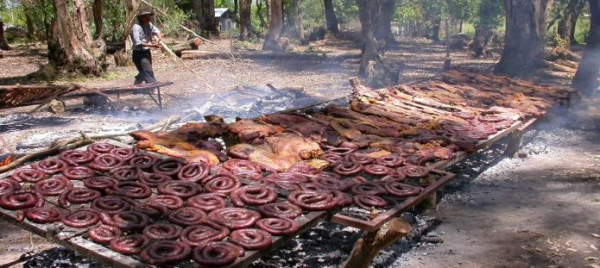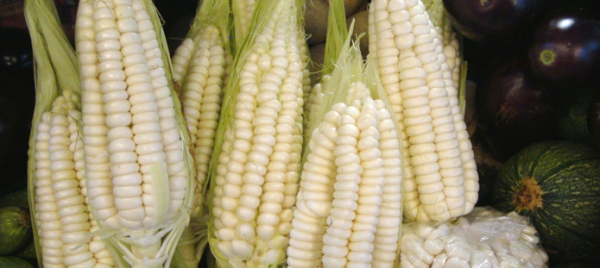AN242 - The Anthropology of Food
This course will explore food concepts, analytical methods, and the food habits of different ethnic groups. The class will have a field trip to the San Luis Valley, and to Northern New Mexico to document the production of food among farmers, cattle ranchers and restaurateurs. (Limited to 12 students.) Meets the Critical Perspectives: Social Inequality requirement. (Not offered 2025-26).
Degree requirement — Critical Perspectives: S
1 unit
Previously Featured Offering
Food has the ability to make statements about culture, class, gender, wealth, and poverty. Through the lectures and readings, the course examines different theoretical perspectives in the analysis of food: functionalism, cultural ecology, cultural history, structuralism, semiotics symbolism, and critical social theory.

The Anthropology of Food takes students to Peru where they will conduct field research to understand and analyze various food systems. Using a symbolic perspective, students will examine how food is a marker of culture identity, social class, and cultural values.

This course will provide students with the research methods and cultural theories to understand and evaluate the different food systems at the local, regional, global, and national level in Peru. Food will be approach from a symbolic perspective and as a marker of social class, and cultural identity. In doing so, students are expected to become familiar with the cultural history of different ethnic groups and their foods and learn to apply a cultural theory to their field-based research project. Overall, students will understand the role of food and how it communicates key cultural values.
Offerings
| Term | Block | Title | Instructor | Location | Student Limit/Available | Updated |
|---|---|---|---|---|---|---|
| Spring 2025 | Block 6 | The Anthropology of Food | Mario Montano | Barnes Science Center 407 | 25 / 11 | 08/10/2025 |
Report an issue -
Last updated: 08/10/2025



